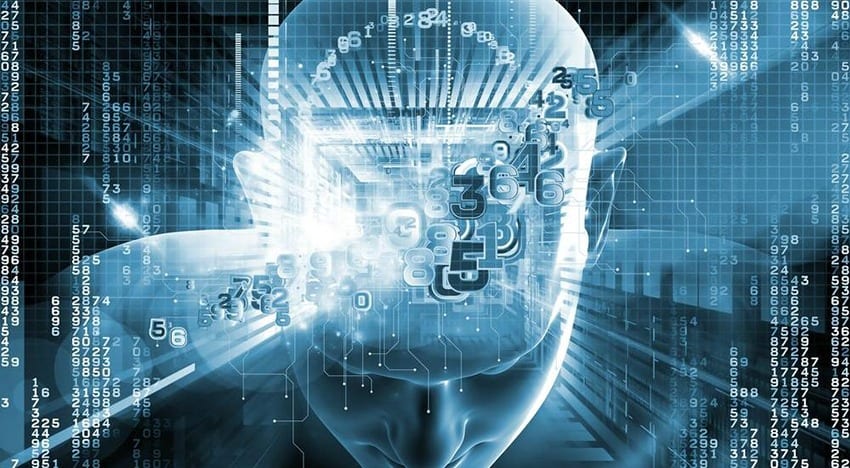AI Future Trends: A Deep Look at the Transformative Power of AI
Aug 16, 2023
Artificial Intelligence (AI) is no longer a concept confined to science fiction. It has become a tangible reality, shaping our everyday lives and transforming various sectors, from education and healthcare to finance and relationships. This article explores the future trends of AI and how these trends will revolutionize different aspects of our lives.
AI in Education: Personalized Learning and Beyond
AI is set to redefine the educational landscape by introducing personalized learning experiences. AI-powered systems can analyze a student’s learning style, pace, and areas of strength and weakness, tailoring educational content to meet individual needs. This personalization will lead to more effective learning, bridging knowledge gaps, and fostering a more inclusive educational environment.
Moreover, AI can automate administrative tasks, freeing up time for educators to focus on teaching. AI chatbots can answer students’ queries, and AI grading systems can evaluate assignments, providing instant feedback.
AI in Medicine: Precision Medicine and Improved Diagnostics
The potential of AI in medicine is indeed vast and transformative. One of the most promising applications is in the realm of precision medicine. AI’s ability to analyze a patient’s genetic makeup, lifestyle, and environmental factors can provide a comprehensive understanding of an individual’s health profile. This holistic approach allows AI to predict disease susceptibility with remarkable accuracy, enabling healthcare providers to take proactive measures for disease prevention.
Moreover, AI can recommend personalized treatment plans based on this analysis. By considering each patient’s unique genetic and lifestyle factors, treatments can be tailored to achieve maximum effectiveness. This customised approach can significantly enhance the effectiveness of treatments, leading to improved patient outcomes and quality of life.
In addition to precision medicine, AI is also revolutionizing diagnostics. Machine learning algorithms can analyze complex medical images, such as MRI scans and X-rays, with a level of detail that surpasses human capability. These algorithms can detect subtle anomalies that might be overlooked by the human eye, leading to early disease detection.
Early detection is crucial in treating many diseases, as it often increases the chances of successful treatment. By improving diagnostic accuracy, AI can significantly enhance patient outcomes, reducing the impact of conditions and potentially saving lives.
Furthermore, AI can also streamline the diagnostic process. By automating the analysis of medical images, AI can reduce the workload of healthcare professionals, allowing them to focus on patient care. This improves efficiency and reduces the risk of human error, further enhancing patient care.
AI in Finance: Enhanced Risk Management and Customer Service
AI is revolutionizing the finance sector by enhancing risk management. AI algorithms can analyze vast amounts of data to predict market trends and identify potential risks, enabling businesses to make informed decisions.
AI can also improve customer service. AI chatbots can handle customer queries 24/7, providing instant responses. AI can also personalize financial advice, helping customers make informed financial decisions.
AI in Healthcare: Predictive Analytics and Remote Patient Monitoring
AI’s role in healthcare extends far beyond traditional medicine. One of the most promising applications is predictive analytics, a technique that uses data, statistical algorithms, and machine learning to identify the likelihood of future outcomes. AI can identify patterns and trends indicating a high-risk patient by analysing vast amounts of patient data. This allows healthcare providers to intervene early, potentially preventing the onset of severe health conditions.
Moreover, AI’s ability to predict health risks can be used to tailor treatment plans to individual patients. This personalized approach to healthcare improves patient outcomes and enhances the patient experience by providing care specifically designed to meet their unique needs.
In addition to predictive analytics, AI is also revolutionizing remote patient monitoring. AI-powered devices can continuously monitor a patient’s health parameters, such as heart rate, blood pressure, and glucose levels, and transmit this data to healthcare providers in real-time. This allows for immediate response to significant changes, potentially saving lives in emergencies.
Furthermore, remote patient monitoring can also improve the management of chronic diseases. Patients can receive timely feedback on their health status, helping them manage their condition more effectively. This enhances patient care and reduces hospital readmissions, leading to significant cost savings in the healthcare system.
AI is transforming healthcare by making it more proactive, personalized, and efficient. As we continue exploring and developing these technologies, we expect to see even more significant improvements in patient care and health outcomes.
AI in Relationships and Sex: Virtual Companions and Enhanced Intimacy
The influence of AI on relationships and sex is a fascinating and complex topic. AI-powered virtual companions are becoming increasingly sophisticated, capable of providing emotional support and companionship. These AI entities can learn from each interaction, understanding the user’s emotional state, preferences, and needs and responding in a personalized manner. This can help combat feelings of loneliness and isolation, particularly among those struggling with social interactions.
Moreover, these virtual companions can also serve as a tool for self-improvement and personal growth. They can provide feedback, encouragement, and advice, helping users to develop better communication skills and emotional intelligence. This can positively impact users’ real-life relationships, enhancing their ability to connect with others on a deeper level.
In the realm of sex, AI is also set to bring about significant changes. AI-powered sex toys are becoming more advanced, capable of adapting to user preferences and providing a highly personalized experience. This can enhance sexual satisfaction and intimacy, both for individuals and couples.
Furthermore, AI can play a crucial role in sex education. AI-powered platforms can provide accurate, unbiased information about sexual health, promoting safe and healthy sexual practices. They can also be a safe space for individuals to ask questions and seek advice, reducing the stigma and embarrassment often associated with sexual health discussions.
AI Future Trends in Warfare: Autonomous Weapons and Cybersecurity
One of the most significant AI future trends in warfare is developing and deploying autonomous weapons. These AI-powered systems can perform tasks with a level of precision and efficiency that surpasses human capability. Autonomous weapons can identify and engage targets without human intervention, reducing the risk of human error and potentially minimizing casualties.
Using AI in autonomous weapons also allows for operations in environments that may be too dangerous for humans. This could include conflict zones with chemical or biological hazards or remote locations that are difficult to reach. By taking humans out of the direct line of fire, AI can enhance the safety of military personnel.
AI and Cybersecurity in Warfare
Another crucial aspect of AI future trends in warfare is cybersecurity. As warfare increasingly moves into the digital realm, the importance of robust cybersecurity measures cannot be overstated. AI can be pivotal in detecting and neutralizing cyber threats, protecting critical infrastructure and sensitive information.
AI algorithms can analyze vast amounts of data, identifying patterns and anomalies that may indicate a cyber attack. This allows for early detection and response, minimizing the potential damage. Furthermore, AI can also predict future cyber threats based on past data, enabling proactive measures to strengthen cybersecurity.
The Ethical Implications of AI in Warfare
Despite the potential benefits, the use of AI in warfare also raises significant ethical concerns. The deployment of autonomous weapons could lead to uncontrolled escalation, as these systems can engage targets without human intervention. This raises questions about accountability and the potential for misuse.
Moreover, using AI in cyber warfare could lead to widespread disruption. Cyber attacks can target critical infrastructure, such as power grids and communication networks, causing significant damage and potentially endangering lives. As we navigate these AI future trends in warfare, it is crucial to establish robust ethical guidelines and regulatory frameworks.
Navigating the Future of AI in Warfare
As we continue to explore the potential of AI future trends in warfare, it is clear that the technology holds both promise and peril. The possibility to enhance defence capabilities and improve cybersecurity is significant, but so are the ethical implications.
As we move forward, we must navigate these challenges with care. This includes fostering open dialogue about the ethical use of AI in warfare, establishing robust regulatory frameworks, and investing in research to understand and mitigate potential risks. By doing so, we can harness the potential of AI to enhance defence capabilities while ensuring the technology is used responsibly and ethically.
Conclusion
As we delve deeper into the exploration of AI future trends, it becomes increasingly clear that the transformative power of AI is not just a fleeting phenomenon but a long-term reality that will continue to shape our world. The potential of AI to revolutionize sectors from education to warfare is immense, and the pace at which these changes are occurring is accelerating.
However, as we continue to harness the power of AI future trends, it is crucial to remember that technology is a tool, and like any tool, its impact is determined by how we use it. The ethical implications of AI, particularly in areas like warfare and relationships, necessitate careful consideration and regulation. The potential for misuse or unintended consequences is real, and we must ensure that principles of fairness, transparency, and respect for human rights guide the development and deployment of AI technologies.
Moreover, as AI future trends continue to evolve, fostering a culture of lifelong learning is essential. The AI-driven world will require new skills and adaptability; we must prepare ourselves and future generations for this reality.
In conclusion, the future of AI holds both exciting possibilities and significant challenges. As we navigate this uncharted territory, our focus should be on harnessing the potential of AI future trends while mitigating the risks, ensuring that the AI revolution benefits all of humanity.
Other Noteworthy Articles to Explore
Remaking Moscow lures more Chinese investment
Chinese firms extend Moscow’s rail networks
Russians show patriotism on nuclear bunker tours
Moscow hi-tech parks seek lower production costs
Despite challenges & sanctions: Russian oil & gas remain profitable
Downed Su-24 shows U.S treachery
Global Warming Is Fake: Let’s See If This is True

Chinese flocking to U.S. Real Estate and German Migrant crisis

U.S. backed Coup in Ukraine, China wins, Russia resists

Fake ISIS Beheadings?
Stock Market Correction History: Decoding Illusions Behind Crashes



